Abstract
The ethical implications of human clones have been much alluded to, but have seldom been examined with any rigour. This paper examines the possible uses and abuses of human cloning and draws out the principal ethical dimensions, both of what might be done and its meaning. The paper examines some of the major public and official responses to cloning by authorities such as President Clinton, the World Health Organisation, the European parliament, UNESCO, and others and reveals their inadequacies as foundations for a coherent public policy on human cloning. The paper ends by defending a conception of reproductive rights of "procreative autonomy" which shows human cloning to be not inconsistent with human rights and dignity.
Full text
PDF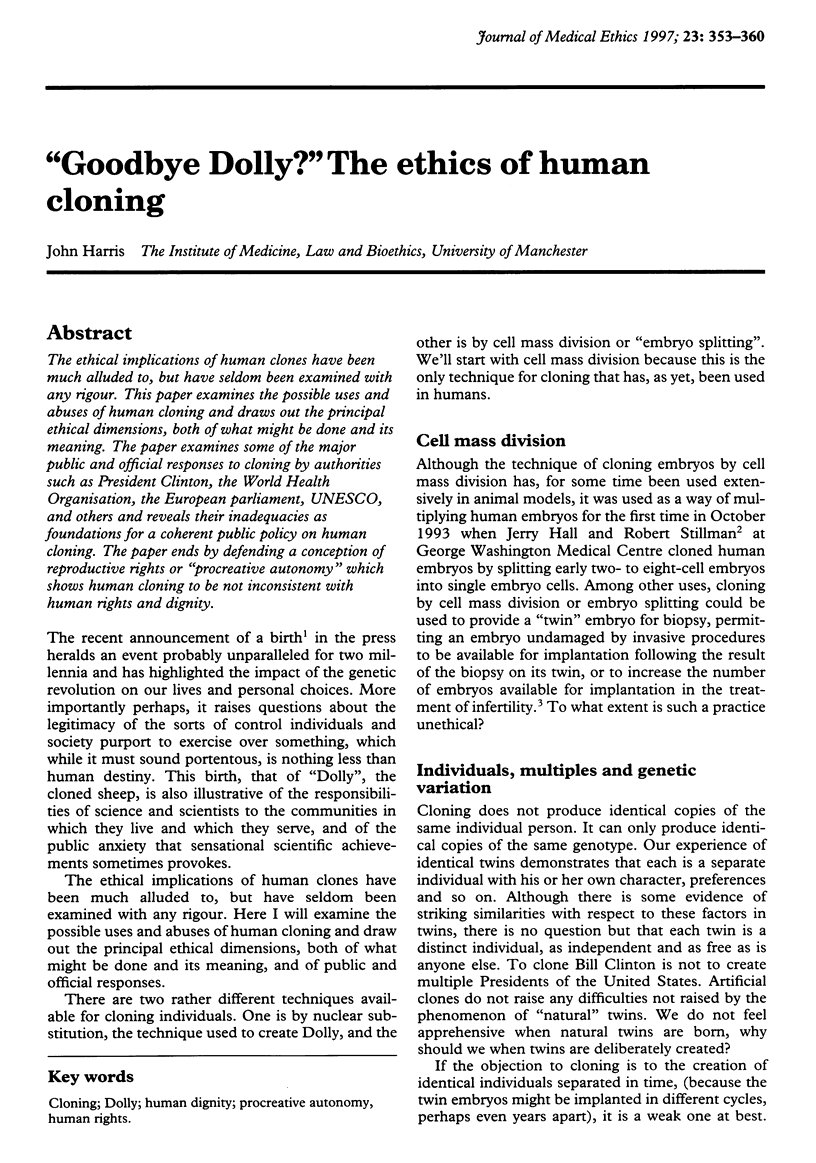
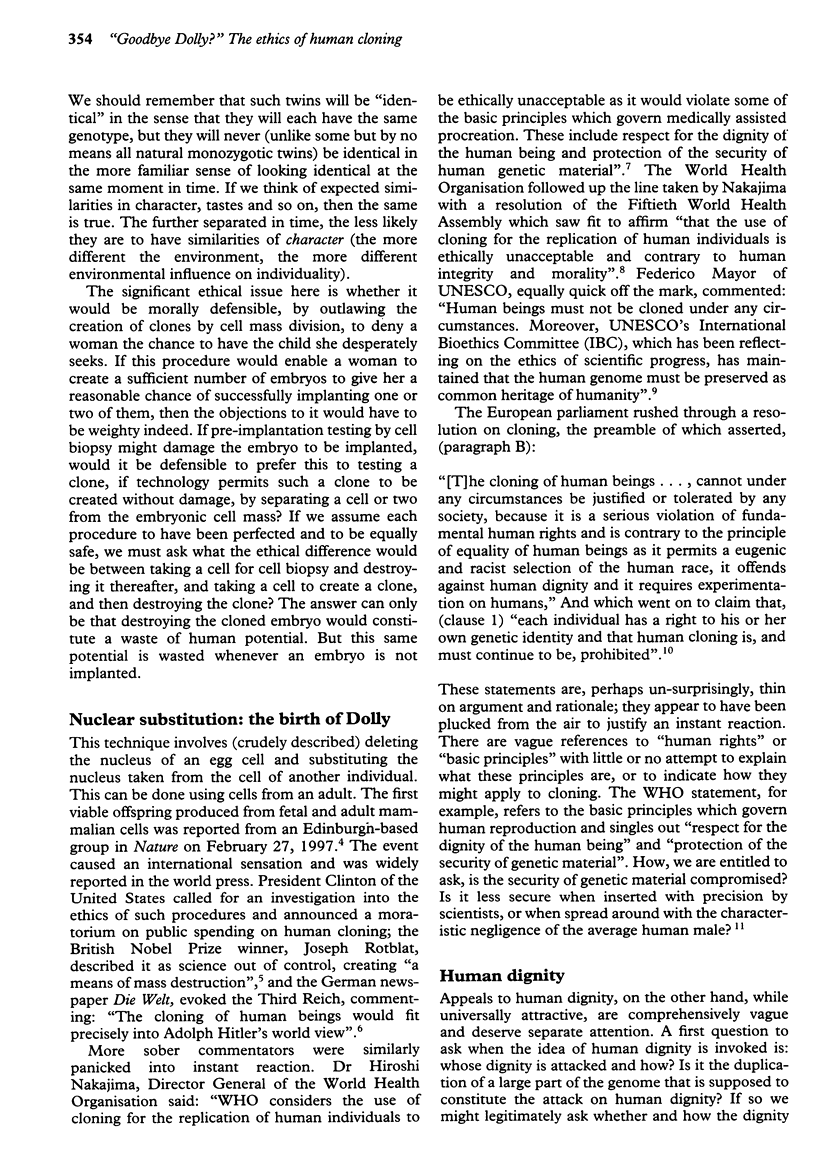
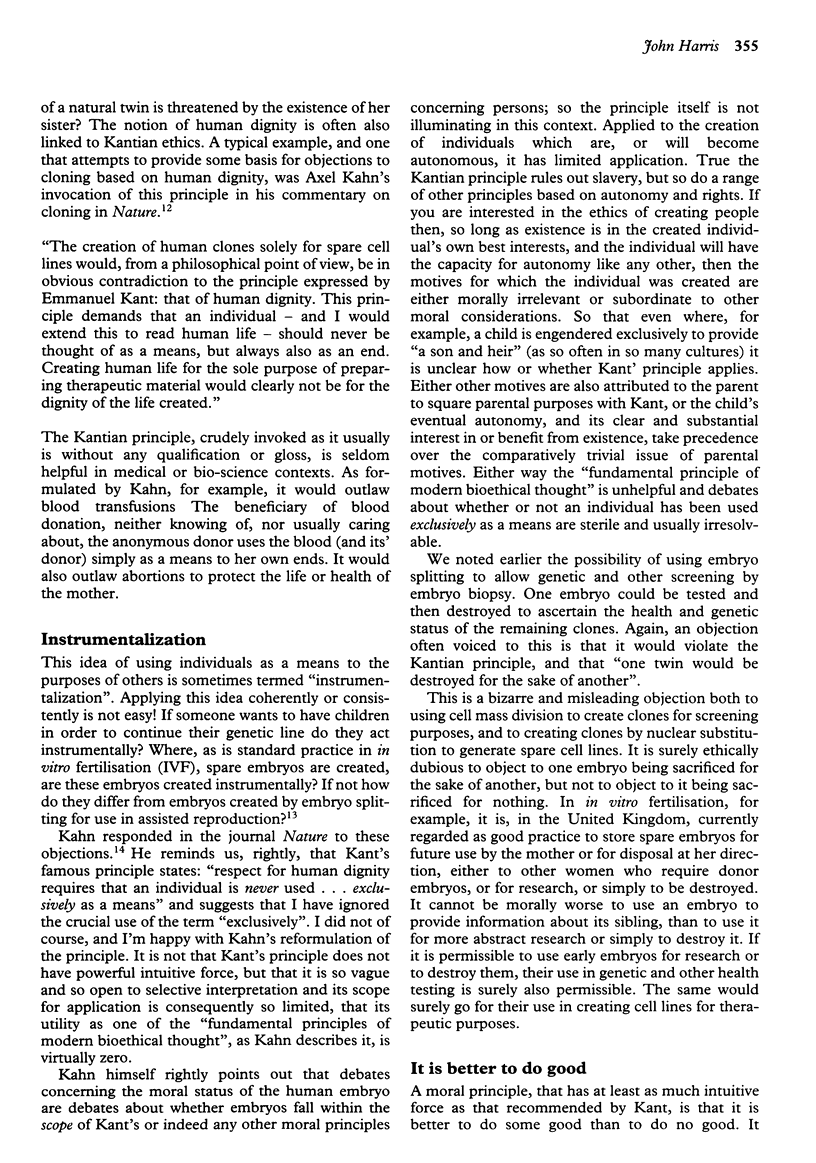
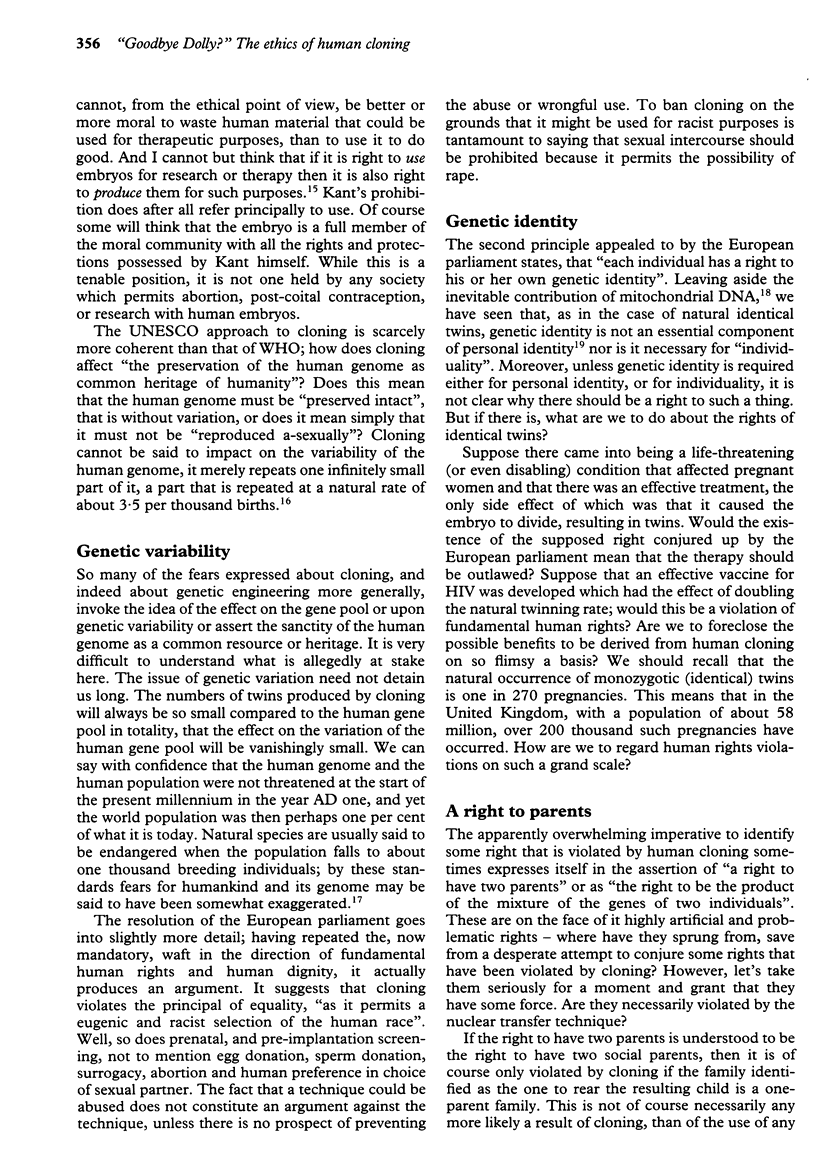
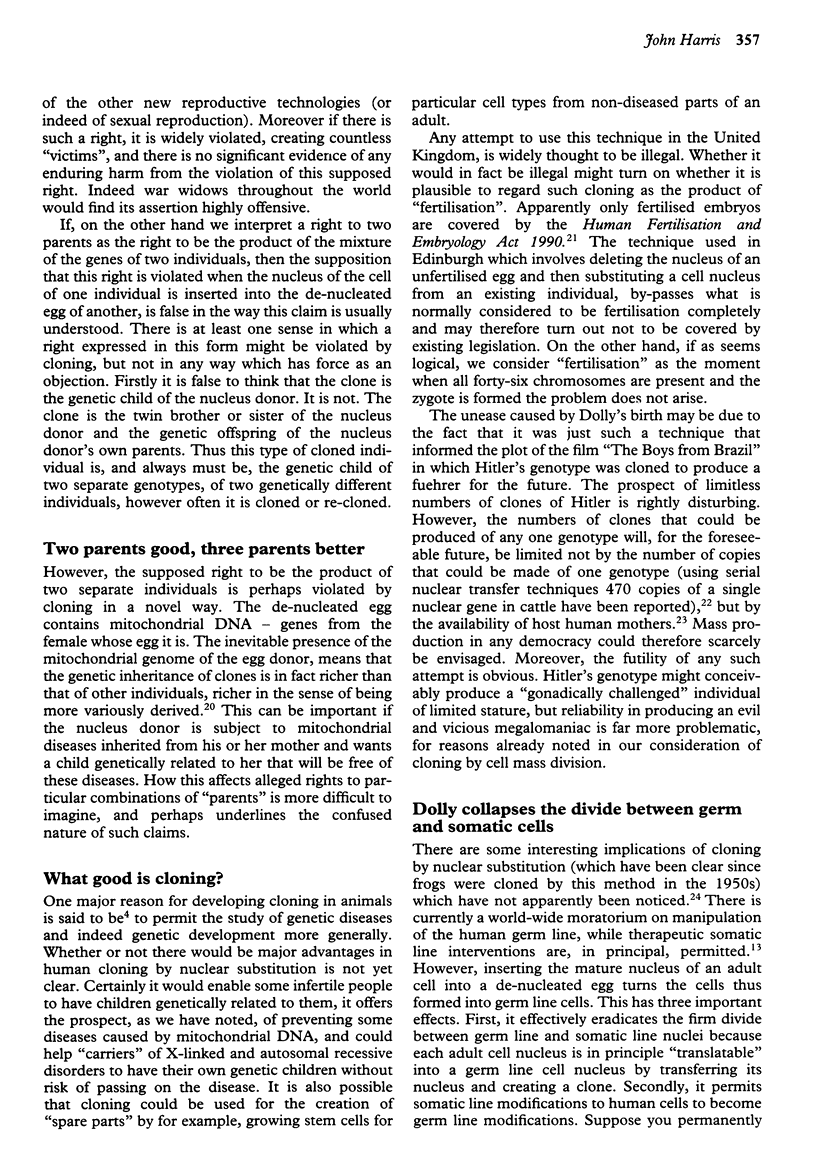
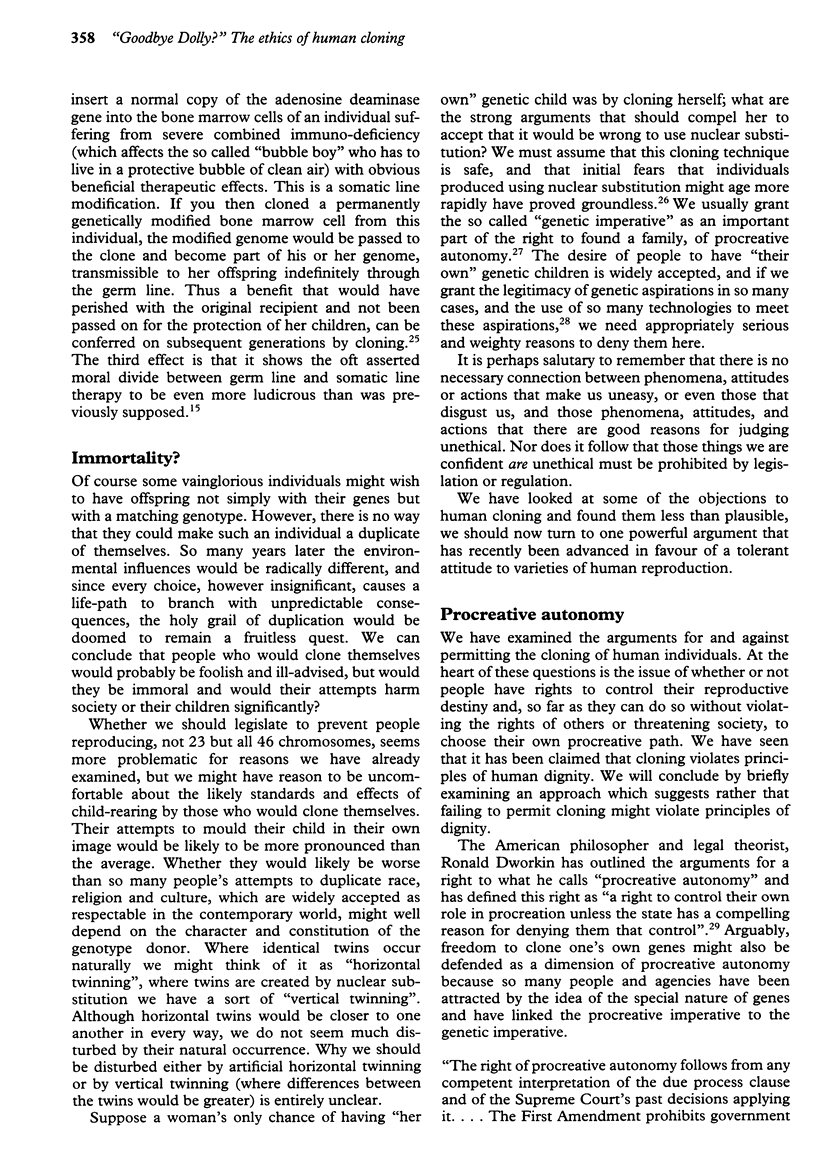
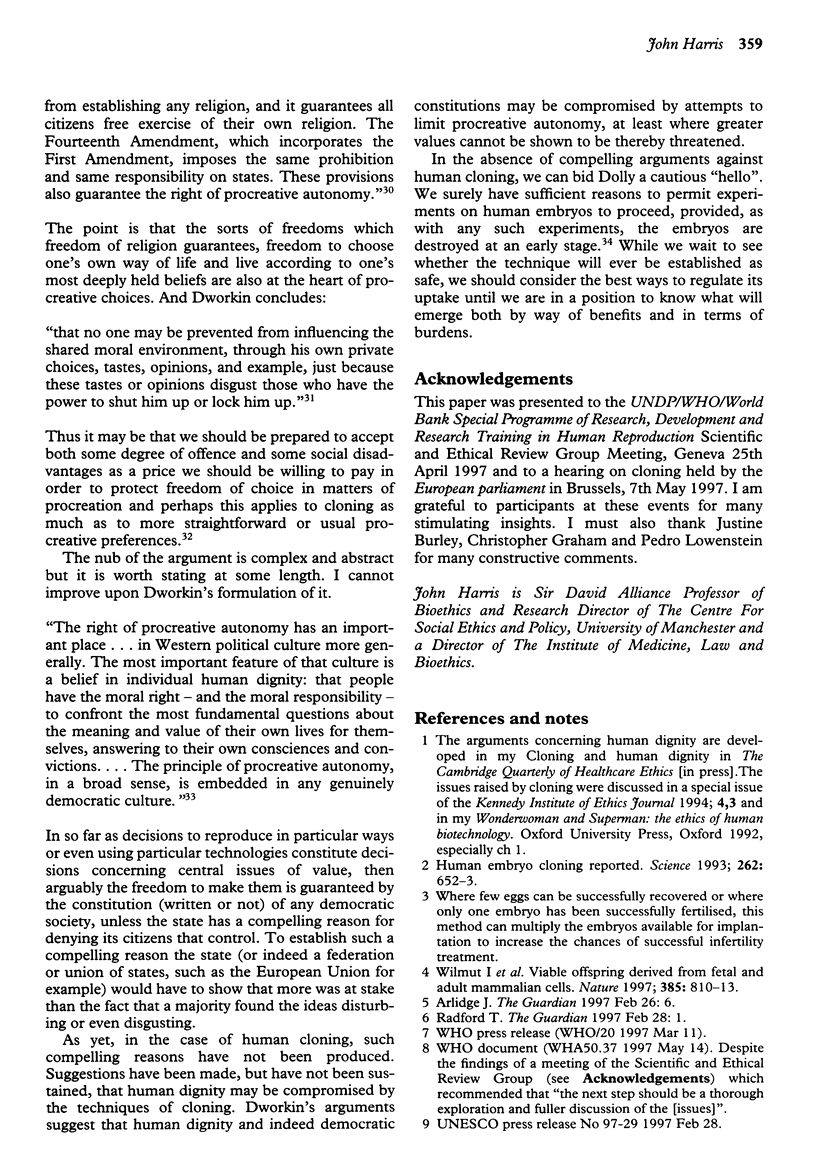
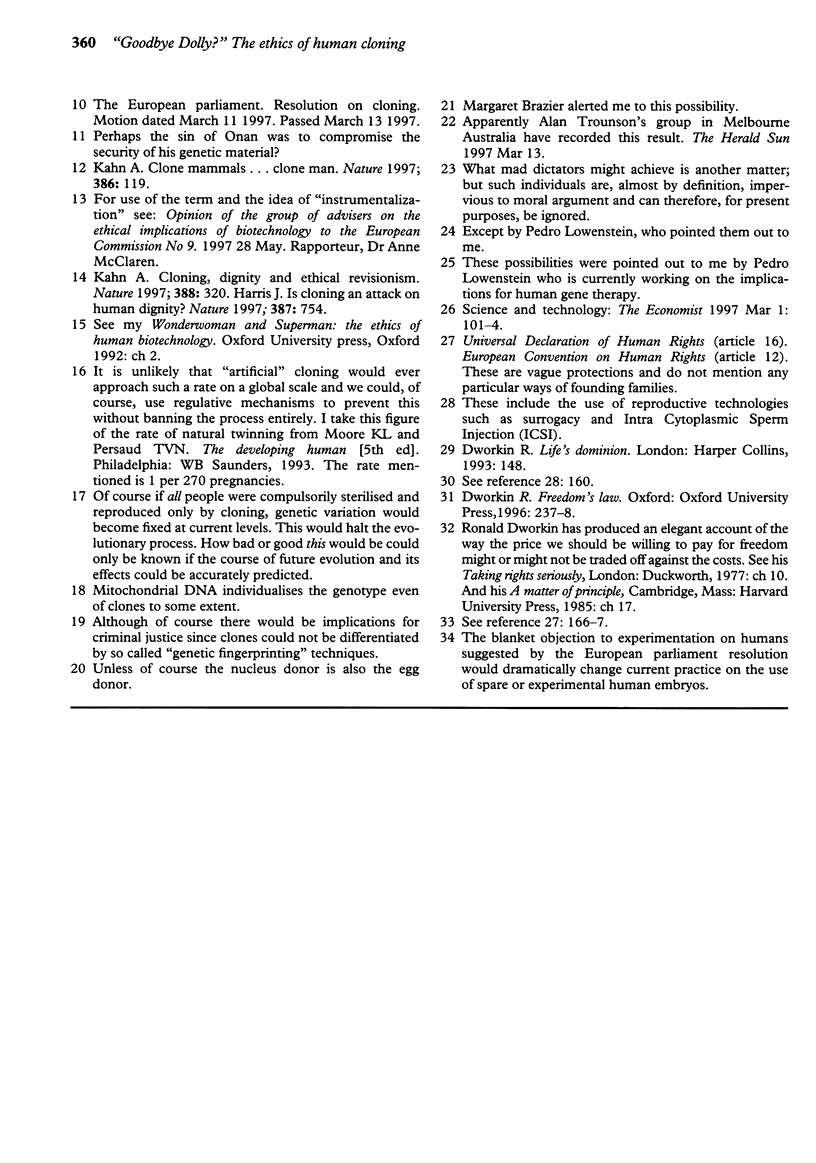
Selected References
These references are in PubMed. This may not be the complete list of references from this article.
- Kahn A. Clone mammals... clone man? Nature. 1997 Mar 13;386(6621):119–119. doi: 10.1038/386119a0. [DOI] [PubMed] [Google Scholar]
- Kahn A. Cloning, dignity and ethical revisionism. Nature. 1997 Jul 24;388(6640):320–320. doi: 10.1038/40960. [DOI] [PubMed] [Google Scholar]
- Wilmut I., Schnieke A. E., McWhir J., Kind A. J., Campbell K. H. Viable offspring derived from fetal and adult mammalian cells. Nature. 1997 Feb 27;385(6619):810–813. doi: 10.1038/385810a0. [DOI] [PubMed] [Google Scholar]


